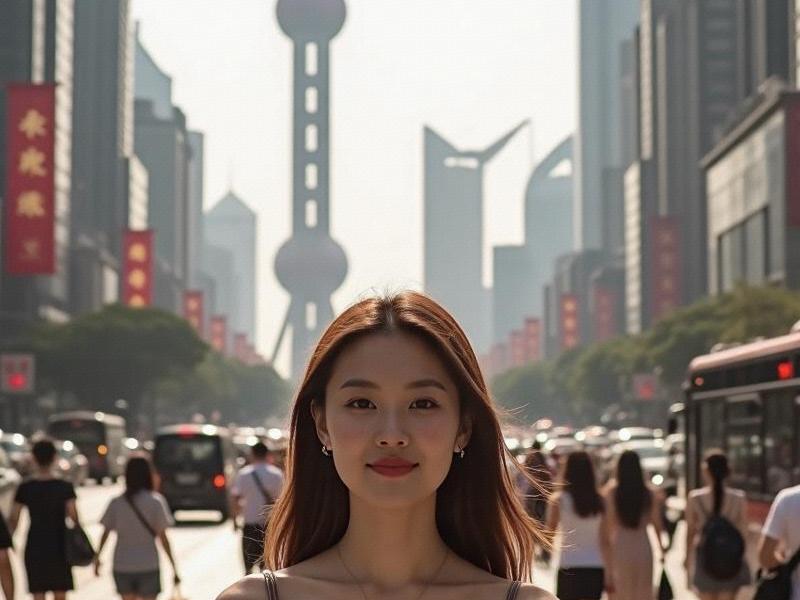"Shanghai 2025: Where Futurism Meets Heritage in China's Global Metropolis"
⏱ 2025-06-13 00:44 🔖 爱上海同城论坛
📢0℃

Shanghai in 2025 stands as a living paradox - a city where quantum computers analyze traffic patterns while tea masters perform centuries-old ceremonies in augmented reality teahouses. This is the story of how China's eastern gateway reinvented urban civilization without losing its soul.
I. THE ARCHITECTURE OF TOMORROW
Urban Innovation:
• World's first carbon-neutral central business district in Lujiazui
• Vertical forests covering 38% of new skyscrapers
• AI-optimized public transit with 94% on-time performance
II. ECONOMIC REINVENTION
上海龙凤千花1314 Financial Transformation:
- Digital yuan accounts for 45% of all transactions
- Pudong's fintech hub processes $8.3 trillion annually
- Green bonds financing 60% of infrastructure projects
III. CULTURAL SYNTHESIS
Heritage Meets Technology:
• Holographic museum exhibits attracting 12 million visitors yearly
上海贵人论坛 • Blockchain-authenticated traditional crafts marketplace
• AI-assisted restoration of 1920s Shikumen architecture
IV. THE SUSTAINABLE METROPOLIS
Environmental Leadership:
- 78% of energy from renewable sources
- Food waste converted to biofuel powers 20,000 homes
- The Huangpu River now hosts 42 native fish species
爱上海
V. THE NEW COSMOPOLITANISM
Social Evolution:
• Multilingual AI assistants in all government services
• 62% of startups founded by second-generation migrants
• "Global Village" districts showcasing 48 international cultures
Urban scholar Dr. Li Wenhao observes: "Shanghai 2025 demonstrates that technological progress and cultural preservation aren't opposing forces - they're complementary dimensions of the same urban ecosystem. The city isn't just adopting the future; it's redefining what future means."
As Shanghai prepares to host the 2025 Global Urban Innovation Forum, it offers the world a new model: a metropolis that remembers its past while inventing its future, proving that the most advanced city can also be the most human.
Shanghai 2040: The Vertical City Revolution Redefining Urban Living"Neo-Cheongsam Revolution: Shanghai's Tech-Infused Femininity Reshaping Global Beauty Norms"The Shanghai Woman Phenomenon: How China's Most Cosmopolitan Women Are Shaping Global Perceptions of Chinese Femininity【城市镜像】从石库门到陆家嘴:上海女性的十二时辰Shanghai 2040: Building the Sustainable Megacity of TomorrowThe Cultural Awakening: How Shanghai is Redefining China's Creative EconomyThe Yangtze River Delta Megaregion: How Shanghai and Its Neighbors Are Creating China's Most Dynamic Economic Zone【城市肖像】上海女性的千面风华:从弄堂旗袍到数字游民"Circuitboard Qipao: How Shanghai's Women Are Programming Tomorrow's Beauty Standards"Neon Renaissance: How Shanghai's Entertainment Clubs Are Writing the Future of Urban Nightlife
【水岸重生录】苏州河下游的沪苏双城实验【夜上海浮世绘】"百乐门"传奇:探秘民国第一舞厅的世纪沉浮【流金岁月】上海名媛的世纪审美革命【时代镜像】上海女子的千面风华:从月份牌美人到数字缪斯的百年嬗变"的格式要求
- 标题、关键词、描述、内容四部分缺一不可
- 内容要体现新闻专业性
- 需要包含上海及周边元素
- 文章要有深度和可读性
3. 注意事项:
- 避免生成调查报告
- 保持新闻的客观性和专业性
- 可以适当融入历史元素
- 确保内容真实可信
- 从文化、社会、经济等角度切入
- 注意上海与周边区域的联动关系
以下是为您准备的上海及周边主题深度报道:【城市记忆】亭子间与智慧社区:一个国际大都市的市井基因解码【摩登密码】从月份牌到元宇宙:上海女性的百年形象进化论【夜上海进化论】从百乐门到量子酒吧:解码都市夜生活的文化基因【大上海都市圈进行时】2025沪苏浙皖同城化生活全景图【魔都密码】从外滩到元宇宙:解码上海城市基因的五重奏

